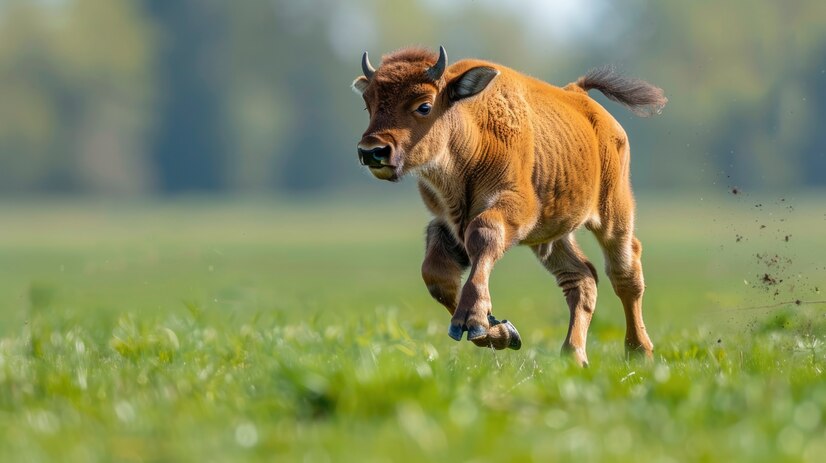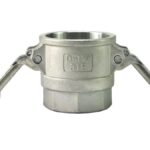Mini Highland cows, with their charming appearance and gentle nature, have become increasingly popular among enthusiasts and farmers alike. These small, friendly bovines are a scaled-down version of the traditional Highland cattle, making them ideal for a variety of settings. In this article, we will explore everything you need to know about Mini Highland Cow, from their characteristics and care requirements to their benefits and FAQs.
What Are Mini Highland Cow?
Mini Highland cows are a smaller breed of the classic Highland cattle, known for their distinctive long horns and shaggy coats. Originating from the Scottish Highlands, these cows have been bred down in size while retaining their unique characteristics. Despite their smaller stature, mini Highland cows possess the same friendly demeanor and resilience as their larger counterparts.
Characteristics of Mini Highland Cows
Size and Weight
Mini Highland cows typically stand between 36 and 42 inches tall at the shoulder and weigh around 500 to 800 pounds. This smaller size makes them more manageable and suitable for various environments compared to standard Highland cattle.
Coat and Appearance
One of the most recognizable features of mini Highland cows is their long, flowing coat, which can be red, black, or brindle. Their shaggy fur not only adds to their adorable appearance but also provides insulation in colder weather. They also have distinctive long horns, which can be quite impressive despite their smaller size.
Temperament
Mini Highland cows are known for their gentle and friendly nature. They are often described as affectionate and easy to handle, making them excellent companions and ideal for families with children. Their calm demeanor makes them well-suited for a range of settings, from farms to suburban backyards.
Care Requirements for Mini Highland Cows
Housing and Space
Mini Highland cows need a comfortable and safe environment. While they do not require as much space as their larger relatives, they still need ample room to move around and graze. A well-fenced pasture with a shelter to protect them from harsh weather is essential. The shelter should be large enough for them to lie down comfortably and should provide protection from rain and wind.
Diet and Nutrition
A balanced diet is crucial for the health and well-being of mini Highland cows. They primarily graze on grass, but their diet can be supplemented with hay, especially during winter months when fresh pasture is scarce. Additionally, providing access to clean water and a mineral lick will ensure they receive all the necessary nutrients.
Grooming and Health
Regular grooming is important to maintain the health of their coat and skin. Brushing helps prevent matting and allows you to check for any signs of skin issues. Mini Highland cows are generally hardy and have few health problems, but regular veterinary check-ups are essential to monitor their overall health and address any potential issues.
Exercise and Socialization
Mini Highland cows thrive on regular exercise and social interaction. They enjoy roaming and grazing, which helps keep them physically fit. Social animals by nature, they prefer to be kept in pairs or small groups, as they can become lonely and stressed if kept alone.
Benefits of Owning Mini Highland Cows
Low Maintenance
Compared to larger breeds, mini Highland cows are relatively low maintenance. Their smaller size makes handling and care easier, and their hardy nature means they are well-suited to a variety of climates and conditions.
Unique and Charming Appearance
Mini Highland cows are undeniably adorable, with their shaggy coats and sweet expressions. They can serve as delightful additions to your property, adding character and charm to your landscape.
Suitable for Smaller Properties
Their smaller size makes mini Highland cows ideal for those with limited space. Whether you have a small farm or a large backyard, these cows can adapt well to various environments.
Friendly and Social
Their gentle and friendly nature makes mini Highland cows great companions. They can bond with humans and other animals, providing a pleasant and engaging experience for owners.
Conclusion
Mini Highland cows offer a wonderful blend of beauty, charm, and practicality. Their smaller size, combined with their friendly demeanor and low maintenance needs, makes them an excellent choice for a variety of settings. Whether you’re a farmer looking for a manageable breed or a homeowner wanting to add a unique touch to your property, mini Highland cows can be a delightful addition to your life.
FAQs
what is the difference between mini Highland cows and standard Highland cows?
Mini Highland cows are a scaled-down version of the traditional Highland cattle. They are smaller in size, weighing between 500 and 800 pounds, and stand between 36 and 42 inches tall at the shoulder. Despite their size, they share the same distinctive coat and friendly temperament as standard Highland cattle.
how much space do mini Highland cows need?
Mini Highland cows require less space than their larger counterparts but still need a decent amount of room. A well-fenced pasture with a shelter is ideal. The shelter should provide protection from the elements and enough space for the cows to lie down comfortably.
what should I feed my mini Highland cow?
Mini Highland cows primarily graze on grass, but their diet can be supplemented with hay, especially during winter. Ensure they have access to clean water and a mineral lick to provide all the necessary nutrients.
are mini Highland cows easy to handle?
Yes, mini Highland cows are known for their gentle and friendly nature, making them relatively easy to handle. They are affectionate and enjoy social interaction, which makes them suitable for families and individuals.
how do I care for a mini Highland cow’s coat?
Regular grooming is important for maintaining the health of a Mini Highland Cow coat. Brush their fur regularly to prevent matting and check their skin for any issues. Their shaggy coat provides insulation, so ensure it is well-maintained to keep them comfortable.







